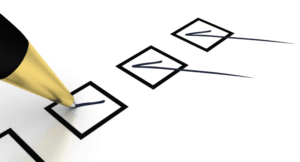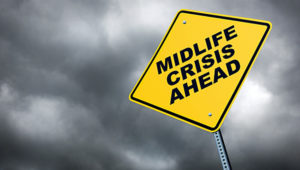And if you do listen to them, do you have a way of judging these calls and providing training to correct/improve them?
Here at The Business Academy, we regularly place mystery phone calls to chiropractic and medical offices. This is a service we provide where we call an office anonymously and evaluate their reception’s performance so the doctor can see if anything needs improvement.
And in this blog post, I want to give you the criteria I use to grade these calls. Some of these criteria may seem simple—but they can make or break your success over the phone, particularly with scheduling new patients. Doing it wrong can mean you are losing a lot of potential new patients.
First, why are we talking about new patient calls? Because it is the most important phone call to a practice. We want to start with our highest value phone call, because if we handle new patient calls poorly, then there’s a high probability that we’re also handling other calls poorly, too (existing patients, referral doctors, vendors, etc.).
So, we’re going to narrow our view to the new patient call right now.
By the way, I created a “Call Grading Sheet” with these criteria that I fill out for each phone call I listen to. You can download the Call Grading Sheet here.
So, let’s pull up your phone call recording system and then start listening to them and comparing them against the criteria I give you here.
(If you don’t have a recording system, you can roleplay some practice calls with your receptionist and see how they handle various types of calls.)
Now, here are the criteria:
1. How many times did the phone ring before it was picked up?
This is actually a very important point! I always want the phone answered by the second ring.
If you’re noticing 3, 4, 5 rings before it’s picked up, that’s an indication that you may be missing calls entirely (either going to voicemail or the caller just hangs up).
That’s bad!
That means you’re missing out on potential new patients!
2. Did they say your practice’s greeting correctly?
Did the receptionist say the name of the practice clearly and loud enough that you could understand it?
Was it the correct name of the practice? Should it be “ABC Chiropractic” or “Dr. Smith’s Office”?
Do you have an established greeting? I generally don’t want staff to follow a script on phone calls, but the initial greeting is the one thing that can be specifically scripted.
3. Did they say their own name clearly?
I cannot tell you how many times I’ve made mystery calls where the practice name wasn’t said clearly and then the person’s name wasn’t said.
It’s a point of personal connection. If you’re trying to make a personal connection with someone, then it’s ideal that they know who they are talking to!
Making a personal connection (and showing that you care about the patient) is what will make your office stand out from other offices. And it’s hard to make a personal connection when the patient is talking to a nameless entity.
Instead of just saying, “ABC Chiropractic, how may I help you?” it’s not hard to add, “ABC Chiropractic. My name is Quentin, how can I help you?”
4. Was the patient put on hold? If so, for how long?
Generally speaking, you want to avoid putting patients on hold if at all possible. Obviously, you may need to transfer them to another team member depending on what they need, and they’ll need to be put on hold briefly.
Two minutes is about as long as I can expect someone to wait. If you don’t pick up the phone again before that, there is a good chance you will lose them.
But even two minutes is stretching it. Honestly, I think you get about 30 seconds, on the safe side.
A new caller that has no personal connection to your office has no motivation to wait for you. They’re out quickly. They’ll just call another office that doesn’t put them on hold.
If the first thing you do is make them wait, that gives the impression that there’s going to be a lot more waiting and a lack of attention when they actually come in for their appointment.
5. Did they get the patient’s name, phone number, and how they heard about the practice?
These three pieces of information MUST be collected from every prospective new patient that calls.
I never trust caller ID. It’s steered me wrong before. So my receptionist always quickly asks the caller’s name and phone number just in case they get disconnected.
The next piece of info you need to get is how they heard about the practice. You may be spending a lot of money on marketing. Or you want to know which of your existing patients referred this new patient.
You NEED to know how these new patient callers heard about you so you know what marketing is working and what isn’t.
6. Did they ask WHY the patient is calling—and were they INTERESTED in the patient?
This is a crucial aspect of the call. We want the receptionist to be INTERESTED in the patient and how you can help them.
There have been countless times during my mystery calls when there was just no interest from the receptionist. They sound like they can’t wait to get off the phone—like the new patient is somehow bothering them by calling in to schedule an appointment or ask a question.
If the patient is asking about the price of an adjustment, let’s find out what hurts, what issues they’re having, if they’re in any pain, etc.
These questions establishing interest in the patient and showing that you care—THAT’S what is going to set your office apart from everyone else.
Imagine I called four chiropractic offices and these are the results:
- First office sounded annoyed by my call and wanted to get rid of me so they could go back to their job.
- Second office answered my questions quickly and then said bye without attempting to schedule me.
- Third office was friendly and interested in me, asked me questions about what issues I was having, explained everything, and went out of their way to ensure I got the help I needed.
- Fourth office went to voicemail.
Which office do you think I’m going to? Obviously Office 3!
Even if they’re not the cheapest or nearest office, I formed a personal connection with Office 3 and I know they’re going to take good care of me.
If your receptionist doesn’t have time to be interested in new patient callers and ask them questions—then you need to organize your front office so someone can take time with these calls undistracted.
7. Did they attempt to schedule the patient for an appointment?
Your primary goal with these new patient calls is to get the patient scheduled and into the office so you can help them.
It’s amazing how many offices I’ve spoken with where the receptionist has no idea that this is the goal. The doctor is spending all sorts of money and effort to get more new patients, but never told the receptionist. So the receptionist thinks their job is just to answer questions and hang up. In fact, maybe the receptionist doesn’t even want more new patients scheduled because they’re already overwhelmed up front and it’ll just be more work.
So, it is vital that the receptionist knows that their primary goal is to get the caller scheduled and into the practice to see the doctor.
This means at some point in every call, the receptionist needs to offer an appointment time to the patient and attempt to get them scheduled.
8. Were they pleasant on the phone?
This one is a little bit subjective, but we can all recognize unpleasantness when we hear it.
The initial phone call is the first impression a new patient gets of your practice. And we all know what they say about first impressions…
If a staff member does not sound pleasant—if they seem annoyed, rushed, rude, inattentive, etc—then they should never be answering the phone. It’s going to drive new patients away and kill your patient retention.
It may be because you are overworking them at the front desk and they really, truly do not have time to answer the phones correctly. In that case, you need to do some reorganizing at the front desk or possibly hire another team member.
Or it may be because they simply are rude or unpleasant and it’s a personality thing. If they can’t change that, then they’re never answering the phone.
The receptionist should be HAPPY that the phone is ringing and excited that this may be a new patient that they can welcome into the practice. That’s the attitude you want at your reception.
9. Did the patient schedule an appointment?
This is what determines whether the phone call was a PASS or a FAIL.
This may seem a little unfair. After all, the receptionist can do a lot of things right but still fail the call because the patient didn’t schedule.
Conversely, they can do a lot of things wrong but still technically pass because the patient scheduled (though you’ll still need to speak with them to correct the things they did wrong).
However, this is the goal. The whole point of all of this is to get new patients scheduled and arrived into the practice. When you are reviewing these calls, you’re trying to find out how many passed and how many failed. Then once you’ve established that, you can use the other criteria to figure out why they passed or failed and go from there.
Summary
Those are my criteria for grading a phone call. Use them! Start listening to your calls and using the Call Grading Sheet here for each one. I think you’ll find some things you can improve.
Also, attend the New Patient Workshop This is a virtual workshop where we give you a complete system (including how to answer the phone and much more) to start seeing more high-quality new patients.
I hope this helps!








